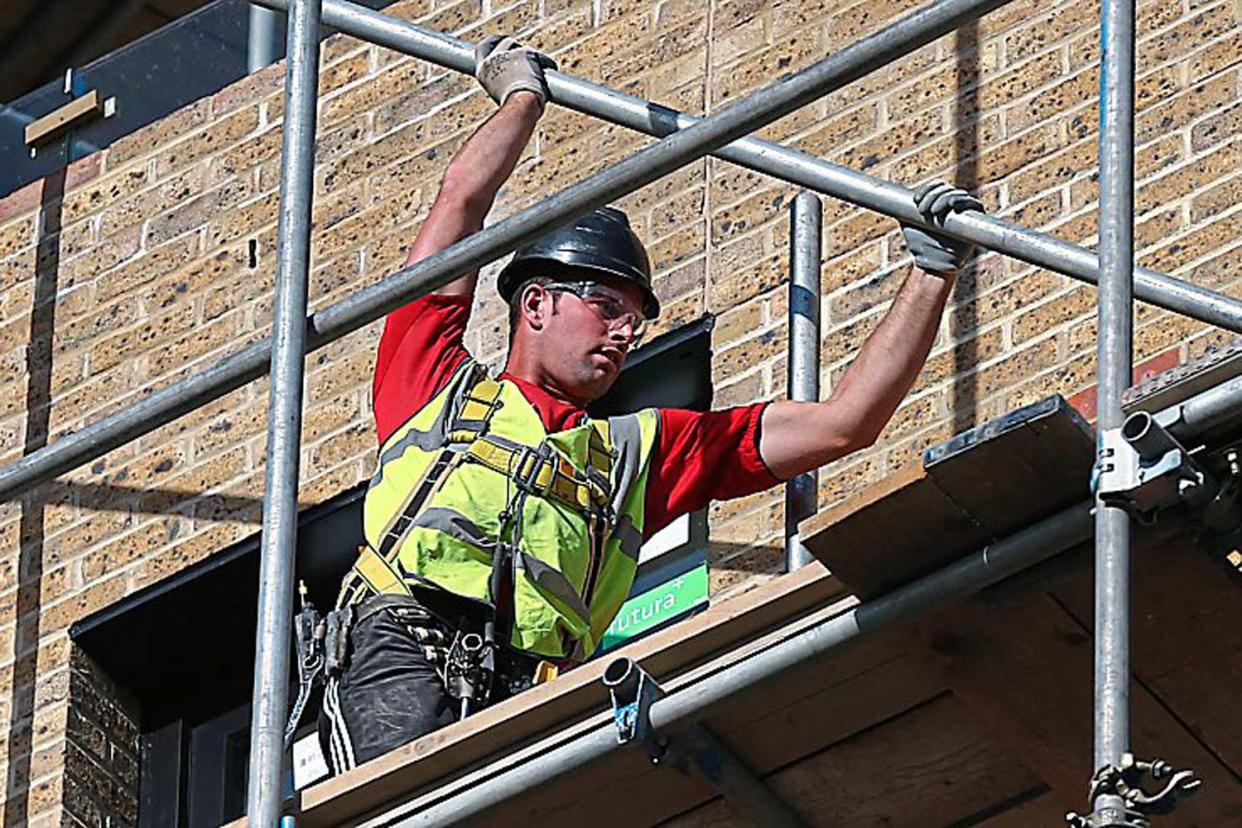Anthony Hilton: Builders behaving like monopolists — so the Government must act

Britain has a housing crisis, and much of the blame rests firmly with the Government.
In 2009, which was the last full year of Gordon Brown’s Labour administration, Whitehall provided £11.4 billion towards the cost of building homes.
By 2015, under the Conservative-led coalition, this had fallen to £5.3 billion.
In cash terms, the money coming from Government has halved. In terms of what it could afford as a percentage of gross domestic product, the fall is even more dramatic. It has dropped from 0.7% of GDP to 0.2%.
It has been the false economy to end all false economies. The shortage of housing has caused rents to soar far out of reach of families on low to middle incomes.
Government has therefore had to scale up the amount it pays in housing benefit — payments to these families so they can afford somewhere to live.
According to the highly respected think-tank, the Institute for Fiscal Studies, back in the Sixties, around 20% of income went on housing costs whether you lived in your own house or rented.
Today, renters spend around 28% of their income putting a roof over their heads, while the cost for homeowners has dropped to 15% of total income.
The cost of this rent subsidy was a staggering £25.1 billion in 2015-16. That is an increase of 51% on the level two decades earlier.
It is a curious political dogma that thinks it is sensible to pour money down the drain subsidising rental payments while refusing to invest even the much smaller sums which would help to build the homes needed to help solve the crisis.
You can understand why Lord Kerslake described Government housing policy as incoherent in the House of Lords a few months back.
He should know — although no longer in post, he was the man who as Sir Bob Kerslake was appointed by David Cameron to run the Homes and Communities Agency, which regulates and watches over the housing associations that make up social housing sector.
Most of the above figures are taken from a report released today at the annual conference of the National Housing Federation, the umbrella body for the not-for-profit housing associations that aim to provide subsidised and affordable housing for rent.
Chief executive David Orr highlighted in his conference address that not a penny from Government currently goes into the construction of homes for social rent, where the rent is tailored to the ability to pay of the tenants.
After the funds for this category of housing were cut to zero in 2010, construction dropped from 36,000 units that year to 3000 the next.
Last year, the number started with Government subsidy was less than 1000. For the record, we need from all sources 250,000 new homes a year.
Listening to him was Sajid Javid, the Communities Secretary and one of this Government’s most ardent free-market believers.
As such, he is probably more in sympathy with the view expressed last year by the Institute of Economic Affairs director general Mark Littlewood, who said: “People, not governments, should decide where homes should be built.”
But is it that simple? We have had a string of housebuilders’ profit announcements in the past few days, all of which have shown an industry in the best of health and making a great deal of money.
It has been this way now for several years. This being the case, the free-market economists of the IEA would have us believe that these same housebuilders will be gagging to construct even more homes next year so they can make even more money.
However, three quarters of Britain’s homes today are built by a handful of large listed companies. Their chief executives do not want to build vast numbers of homes and risk depressing the market.
Instead — and some are quite open about this — they want to build as few as they can sensibly get away with because that it the best way to keep prices high, profit margins up and their shareholders happy.
Far from embracing the opportunities of the free market to expand, they are behaving like monopolists and rationing supply — as Adam Smith predicted businessmen would when they thought they could get away with it.
With the private sector behaving in this way, the only hope is for Government to step in — either by providing substantially more funds for the housing associations or by once again encouraging local authorities to build council houses.
This should not be a difficult decision. At no time since the Second World War has the private sector built the houses required to keep pace with Britain’s growing needs.
In the Sixties — when we regularly constructed more than 300,000 homes a year, well over double a typical year’s output today — roughly half were built by local councils for rent.
This, indeed, provided the stock which Margaret Thatcher insisted should be sold off in the Eighties in the belief that homeowners were more likely than renters to vote Conservative.
No other country in Europe makes such a mess of its housing policy but what is really frustrating is that, with interest rates at record lows, it would be easy to borrow the money needed to finance the housing associations so they could embark on a truly transformational programme.
Then all we would have to worry about in a post-Brexit world of strict immigration controls is where we would find the skilled people to do the building.

 Yahoo News
Yahoo News 
